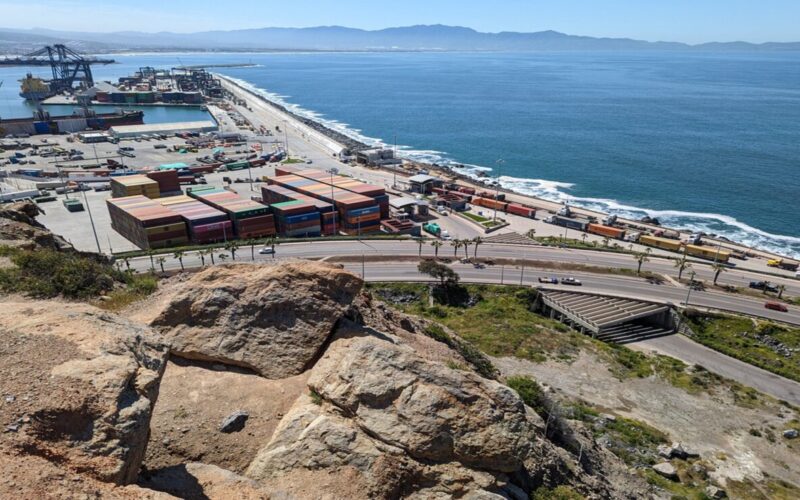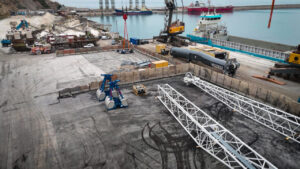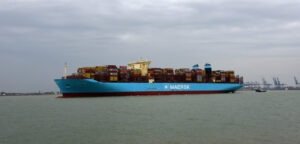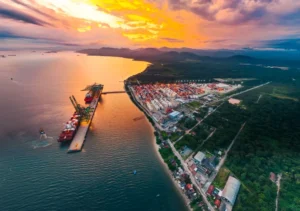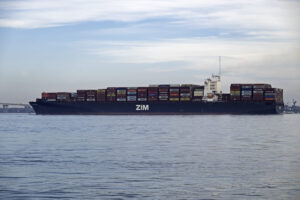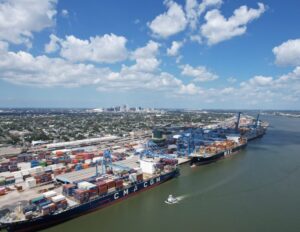Oregon lawmakers have approved a $100 million investment in the Pacific Coast Intermodal Port (PCIP), advancing the development of a modern container terminal at the Port of Coos Bay.
The funding marks a major step forward for the public-private PCIP project, which aims to transform Oregon’s South Coast into a global trade hub by establishing a ship-to-rail container terminal.
The terminal will link the Port of Coos Bay to Midwest markets via the Coos Bay Rail Line and the Union Pacific Railroad in Eugene.
This state funding adds to $58 million in federal support secured through the U.S. Department of Transportation’s INFRA, CRISI, and RCE grant programmes.
READ: Congo Terminal invests €400 million in new container terminal
Melissa Cribbins, Executive Director of the Pacific Coast Intermodal Port project, said: “This project reflects the kind of bold, future-focused investment that Oregon needs. For too long, rural communities like those on the South Coast have been left behind.
“This project gives us a path forward, one grounded in good jobs, sustainable freight infrastructure, and long-term community stability.”
READ: Digital gaps slow AI adoption in intermodal terminals
The PCIP is expected to create more than 2,600 construction jobs, 2,500 permanent direct jobs, and up to 8,000 total jobs across logistics, warehousing, and small business sectors. All are expected to be family-wage, benefit-bearing positions.
Chad Meyer, CEO at NorthPoint Development, stated: “This project is about building something real and lasting, not just for the region, but for the working people of Oregon.
“Together, we’re bringing modern logistics capacity to the South Coast in a way that benefits the entire country.”
In recent news, disruptions affecting Canadian Pacific Kansas City rail operations in the US Gulf states are causing delays and congestion for carload and intermodal freight, with repercussions felt across North American supply chains. Bottlenecks have emerged in Louisiana and Mississippi, disrupting the intermodal flow of goods between Mexico and the southeastern US.

